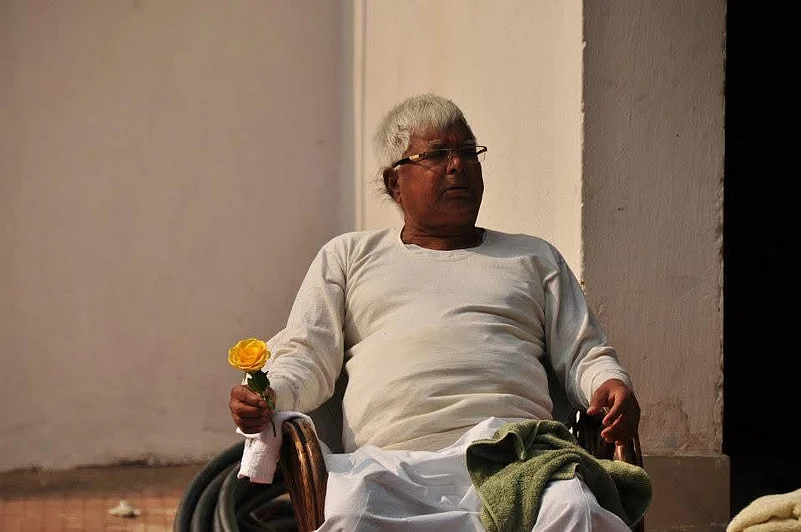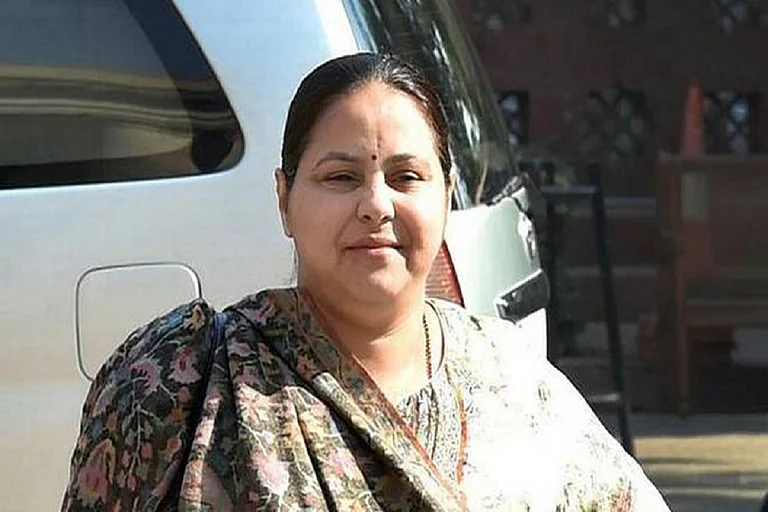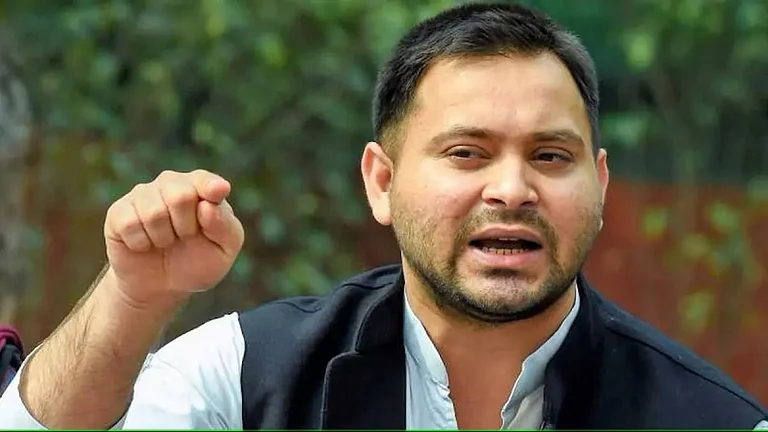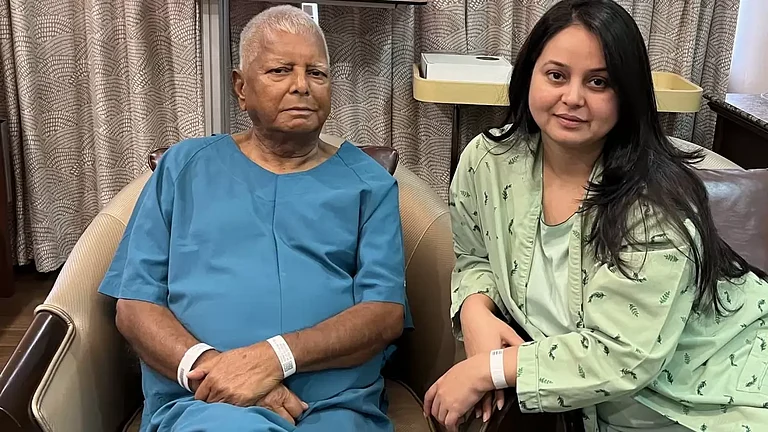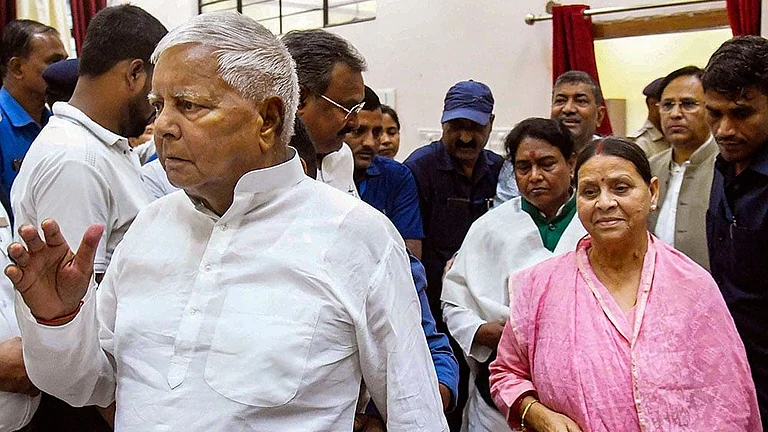
A journalist recounts a spontaneous 2013 meeting with RJD chief Lalu Prasad Yadav in Patna.
The piece contrasts Lalu’s open approach with Tejashwi Yadav’s limited media access.
Reflects on Bihar’s shifting politics, enduring crime links, and the persistence of “Jungle Raj”.
More than a decade ago, I met former Bihar chief minister and RJD supremo Lalu Prasad Yadav in Patna. I happened to be passing his residence, stepped out of the car, and asked at the gate if he might receive me.
It wasn’t even for a story, but sometimes the most interesting encounters come from spur-of-the-moment decisions. Lalu Prasad called me inside immediately. It was January 2013, and he asked whether I wished to speak in Hindi or English.
He didn’t ask which publication I worked for or what I planned to write. But that was Lalu: uninhibited, unapologetic, and unconcerned. In those days, you could turn up and speak to a leader. Today, you must navigate a maze of gatekeepers.
A few days ago, I dropped by the residence of Tejashwi Yadav, Lalu Prasad’s son and now the Mahagathbandhan’s chief ministerial candidate. No one bothered to pass on my message. Repeated calls to his “close men” yielded nothing.
For years, opposition leaders have claimed they are denied a platform and the media is biased. Yet for many journalists not linked to television channels—where visibility is higher—access is hard to secure, especially when all one seeks is to do one’s job, not ask for favours.
Back then, when Lalu Prasad was well and in charge, things were different. That morning, he sat in the garden with aides who read newspaper headlines aloud to him. His wife, Rabri Devi—herself once chief minister and later a legislative council member—lived across from the official CM residence where the couple had spent many years.
Every year in January, on Makar Sankranti, Lalu Prasad Yadav kept his gates open for anyone who’’d walk in around the festival of Makar Sankranti. Lalu asked me to come later in the evening.
I went that evening and I was ushered into a shed where a fire had been lit and Lalu Prasad was taking a meeting. I was still a bit unsure about being there because I had grown up in that era that the BJP is tagging as Jungle Raj and my school senior Shilpi Jain had been raped and murdered many years ago and the case never got solved even with CBI’s involvement.
Been three decades now and every election season, the ghost of the case raises its ugly head and is then forgotten again.
Many rapes and murders have happened in our state and back then, kidnappings were the order of the day and as girls growing up then, we hardly stepped out of homes except for going to school and we had to be kept safe within the walls of our homes and we weren’t free. But I have now come to understand that politics and our perception of it is often subjective.

We can never be objective, but we must attempt to put things in perspective. History and memory both are to be conjured to make sense of things. Inequalities and crime don’t disappear overnight. Bihar is a place of chaos. Of bullets and dissent and hope and despair.
In any case, when I met Lalu Prasad Yadav that evening, he asked all the men to stand up and greet me. They were his party workers and a few were MLAs. I recognised a few faces.
They went ahead with their meeting. I asked a few questions and was then, asked to come the next morning for Makar Sankranti.
I went again and Lalu Prasad Yadav took me around the house to show me the preparations for the big feast. He even taunted me that I didn’t know much about these rituals and then, asked me to call my parents and my school principal. He wanted to invite them. My mother still recalls the strange phone call. She thought it was a prank call and Lalu Prasad explained to her the directions to his house and kept insisting he was indeed the former Chief Minister.
I told him we can’t eat because it would be unethical and I remember him laughing and telling me that dahi-chura wasn’t going to corrupt my soul and interfere with my reporting.
Lalu Prasad's party lost power in Patna in 2005 and JD(U)’s Nitish Kumar said he would get rid of the Jungle Raj in Bihar and fought the elections in alliance with the BJP,and then again in 2010, crushing Lalu's hopes of a comeback and this is election season in Bihar, that hope is rekindled with his younger son trying to hold his ground against Nitish Kumar, who according to reports and sources hasn’t been keeping well, and the BJP.
Tejashwi, who was a professional cricketer then, had already been named the “prince” in the party posters. That afternoon, Lalu Prasad told me all his children would join politics.
His image had been damaged, and he tried to distance himself from the patronage enjoyed by unpopular figures such as Subhash Yadav and Sadhu Yadav, the brothers of his wife, Rabri Devi. Although they were eventually sidelined, the damage to Lalu Prasad’s reputation had already been done.
When he had put Rabri in his place by making her his successor, many had seen it as a form of dynastic politics that Lalu had fought against all his life, and now that is being questioned again with his daughters and sons in politics.
Rabri was sworn in as CM not once but twice.
Lalu Prasad had been accused in numerous cases, chiefly of corruption, the most infamous being the 90s' Fodder Scam in which Rs 950 crore was unaccounted for from the state's animal husbandry department and he was held in judicial custody on a few occasions. Even now, the cases haunt him.
He said journalists had been unfair to him.
In 1992, as Hindu-Muslim riots broke out across the country after the Babri Masjid demolition in Ayodhya, Lalu had enforced a strict curfew in Bihar and he himself did the rounds to ensure there were no incidents of violence. In 1990, he had arrested BJP leader LK Advani in Samastipur after warning him that the Rath Yatra for building the Ram Mandir should not enter Bihar because Lalu Prasad didn’t want communal riots and his M-Y (Muslim and Yadav) voter base was a strong electoral combination at the time, which continues even now.
Jungle Raj: Past and Present
The Bihar Assembly elections are to be held in a few days and “Jungle Raj” is again in vogue. Not just as a reminder but as a continued state of affairs in Bihar even under the current regime. JD(U)’s Anant Singh from Mokama constituency has been arrested in the murder case of an ex-aide of Lalu Prasad Yadav. Anant Singh, who has been the MLA from Mokama for four terms, is fighting against RJD’s Veena Devi, who is the wife of another Bahubali Suraj Bhan Singh.
Anant Singh has 28 cases against him and has spent time in jail. He is known as the Chote Sarkar in the area. There are many criminal-politicians in the fray this time and have been fielded by most political parties here. What does that say about Bihar? Jungle Raj isn’t just a thing of the past.
He wouldn’t have remembered me.
But I remember that chance meeting with him then and his willingness to take questions. They say Tejashwi is like his father and while he has blamed the media for not being fair to him, he must also make himself more accessible to journalists.







